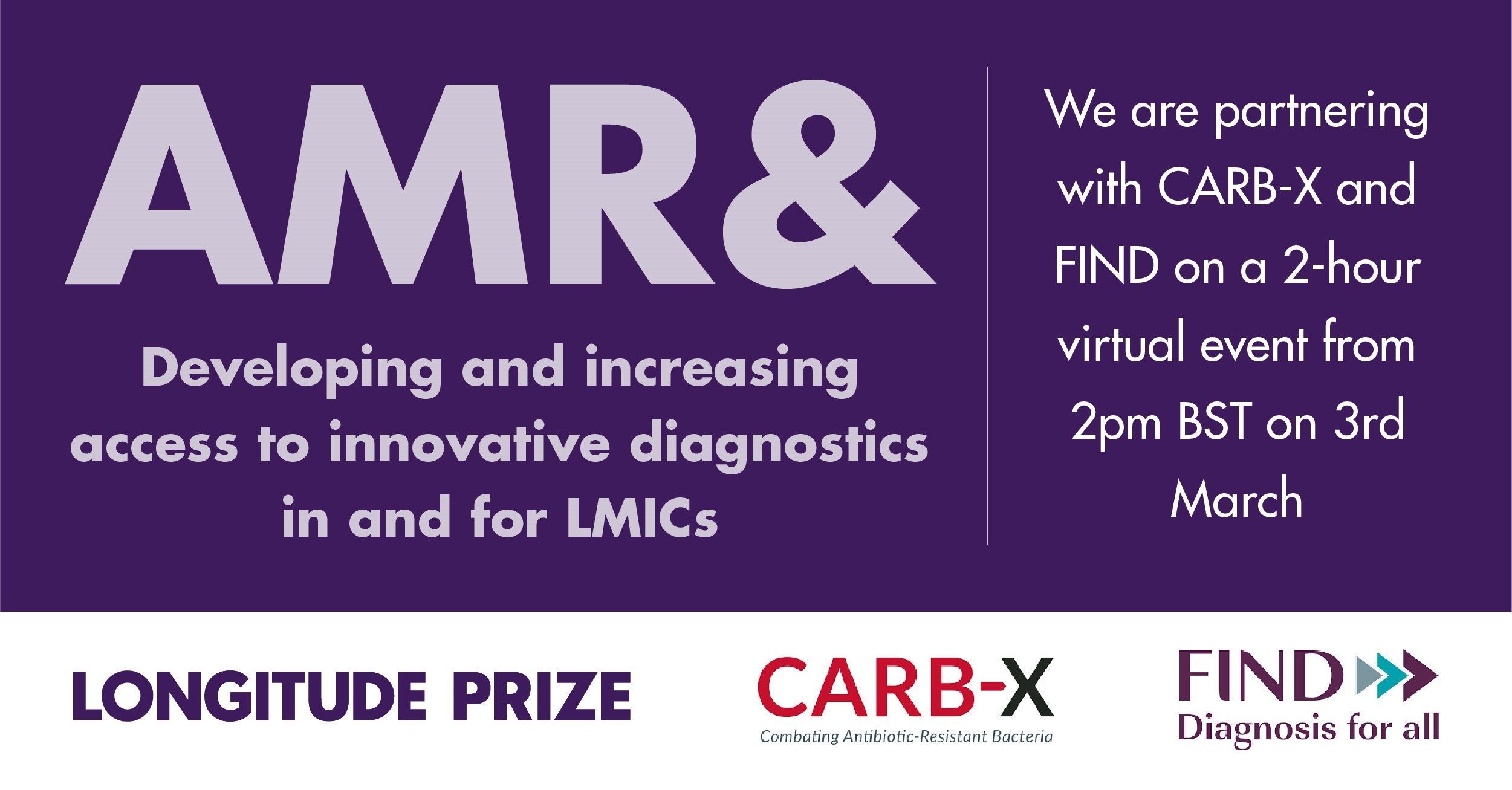AMR& Diagnostic Frontiers: Virtual Event on 3 March (with CARB-X & FIND)
19 Jan 2022
The Longitude Prize (run by Nesta Challenges), CARB-X and FIND, have joined forces for a virtual event in March, AMR& Diagnostic Frontiers: Developing and increasing access to innovative diagnostics in and for low-and-middle-income countries (LMICs).
Background
The new Global Research on Antimicrobial Resistance (GRAM) study in the Lancet revealed that Antimicrobial Resistance (AMR) has become a leading cause of death worldwide, with more than 1.2 million people dying as a direct result of antibiotic-resistant bacterial infections in 2019.
Lack of access to diagnostics and antibiotics have been drivers of high death rates from AMR in Sub-Saharan Africa and South Asia. Though, the value of rapid diagnostic tests to healthcare and society has never been higher than at present, as their deployment in the detection of Covid-19 has thrust them into public consciousness and into everyday use.
Innovation projects focusing on developing diagnostics that can be integrated into existing health systems are crucial. For many years, innovators have been developing and refining the next generation of rapid AMR diagnostic tests. To achieve commercial success and build a sustainable business, most diagnostic developers focus on tests that suit high-income countries (HICs), although not an issue unique to novel AMR diagnostics. At the end of 2021, The Lancet Commission on Diagnostics found that a staggering 47% of the global population have little to no access to diagnostics.
One positive impact during Covid-19, has been increased focus on local production of diagnostics, for example through tech transfer to local manufacturers. There has also been discussion about boosting LMIC innovation capacity so that MedTech products can be designed for and tested in LMICs. How can we use the global experience from Covid-19, for AMR diagnostics?
There is both a need to increase access to appropriately-designed diagnostics developed in HICs for LMICs and to locally develop more products in and for LMICs.
Register now for our event, where we aim to make the case for local manufacturing, adaptation of, and development of homegrown AMR diagnostics in LMICs, in part by sharing diagnostic success stories. We also aim to raise awareness of the AMR diagnostics pipeline, by bringing donors and funders together with companies developing diagnostics.
Agenda

